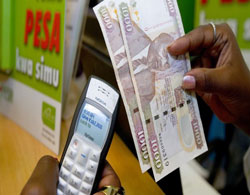Just out: An ethnographic study on mobile money attitudes, perceptions and usages in Cameroon, Congo DRC, Senegal and Zambia

The final results of the research project Ethnographic Study on Mobile Money in Africa have just been published. The project was financed by the International Finance Corporation (IFC) as part of the MasterCard Foundation Partnership for Financial Inclusion. The project is a comparative ethnographic study into the usage, perceptions and attitudes towards digital financial services (DFS) in four selected countries: Cameroon, Democratic Republic of Congo (DRC), Senegal and Zambia. The results presented give a voice to users of DFS, giving insight into why people are motivated to use DFS and why they might not be using specific mobile phone-related monetary transfer systems. They also contextualize these motivations through a cultural understanding and reveal that the specific socio-economic and political contexts in which monetary transfer systems function play an important role in the decisions consumers make.

